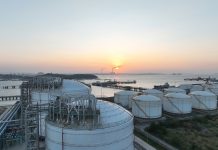Find out here what makes the €10 million ERC Synergy Grant unique and valuable for academics seeking to push the boundaries of their fields
With a total amount of €10 million awarded annually since 2011, the European Research Council (ERC) synergy grant has attracted more than 5,500 applicants over the past five years.
The grant funds ground-breaking research that would otherwise be impossible due to financial constraints and continues to help facilitate breakthroughs in scientific discovery.
Why is this type of funding essential for advancing knowledge?
The ERC Synergy Grant offers a unique platform for interdisciplinary collaboration between leading European scientists, enabling them to pursue cutting-edge research ideas together, which wouldn’t have been possible without generous support.
Grants like the ERC help provides funding, expertise, and facilities to advance understanding of complex topics such as climate change, energy efficiency, and health sciences.
But what exactly is the ERC Synergy Grant, and what is needed for the application process?
The ERC Synergy Grant is an international grant program created to support collaborative research projects.
The overall purpose of the grant is to enable large-scale collaborations focused on groundbreaking ideas with transformative potential.
Enable large-scale collaborations focused on groundbreaking ideas with transformative potential
The details, outlined by the European Research Council (ERC), state:
- Applicants must provide evidence that their project requires the combined expertise of at least two principal investigators from different backgrounds or institution
- Special attention is given to proposals involving international collaboration and those led by female scientists
- The project should have clear objectives
- Be feasible within five years
- Include interdisciplinary approaches
- Propose new scientific methods and techniques
- Demonstrate its own unique qualities compared with other existing research initiatives
With a budget ranging from €2 million up to €10 million, depending on each project’s scope, the ERC Synergy Grant will be facilitating cutting-edge research across disciplines.
This technique has successfully provided financial backing for innovative studies in fields such as medicine, technology, engineering, social sciences, humanities, mathematics and physics.
What are the key objectives of the ERC Synergy Grant?
Designed to fund projects that push the boundaries of discovery and bring together two or more researchers in any field to reach a collective goal. The overarching goals of this grant are to make an impact on society and create opportunities for innovative problem-solving.
The goals of this grant are to make an impact on society and create opportunities for innovative problem-solving.
| Specific Objectives of the ERC Synergy Grant |
|---|
| Support collaborative research projects involving 2-4 researchers |
| Provide funding of up to €10 million for transformative projects |
| Encourage interdisciplinary research and exchange of ideas |
| Promote international cooperation and collaboration |
| Foster innovative solutions to global challenges |
| Create a platform for long-term, sustainable research collaborations |
What are the eligibility requirements?
Applicants must meet the eligibility criteria in order to be considered for this grant, which includes having proof of concept, financial requirements, residency requirements, project timeline, matching funds requirements and technical expertise.
To be eligible for the ERC Synergy Grant, applicants should have the following:
- Qualifications should demonstrate commitment to interdisciplinary teamwork and leadership ability.
- Provide evidence of successfully integrating knowledge from various disciplines for innovative solutions or products.
- PIs must have experience working together and combining skills for a cohesive effort.
- They must present proof of concept for the proposed work’s potential original contribution in new knowledge or breakthroughs.
- Financial requirements may vary depending on the scale and duration of the project but all costs related to personnel, consumables and equipment needed during the execution phase should be taken into account when applying for this grant.
- At least one PI needs to hold a permanent position in any EU Member State or Associated Country, while other members of the team may reside anywhere else worldwide.
- Project timelines require detailed goals and deliverable information, with estimated expenses.
- Applicants must provide additional resources, leveraging private sector or public grants.
- Technical expertise should cover scientific and administrative aspects for successful compliance management.
The process once approved
Following their approval for funding, applicants will have up to 36 months to complete their project according to their initial designs and stated goals outlined in their concept notes.
This period may be extended if needed depending on certain circumstances or justified delays due to external events beyond the applicant’s control.
During this time, PIs will need to keep track of expenses related directly or indirectly to their projects while also reporting regularly on progress made towards achieving targeted outcomes.
Successful completion of these steps allows applicants access up to €10 million in combined funds from both EU sources as well as national governments across Europe.
With sufficient planning, commitment and dedication, those awarded can take advantage of this unique opportunity for international collaboration leading towards groundbreaking discoveries down the line.
ERC funding: One of the most generous grants available in Europe
The ERC synergy grant provides up to €10 million in funding over six years and can cover all aspects of a research project, including personnel costs and equipment purchases.
This makes it one of the most generous grants available in Europe.
Interesting statistics show that since 2012, when the ERC Synergy Grants were established, more than 420 successful applications have been approved, with an average success rate of 13%.
The maximum level of available funding ranges from €5-10 million depending on the size of the group and the number of activities proposed by the applicants.
In 2017 alone, 55 projects benefited from this type of grant, with total awarded funds reaching almost €400 million.
55 projects benefited from this type of grant, with total awarded funds reaching almost €400 million
Overall, these types of grants support innovative interdisciplinary approaches which help increase knowledge while bringing together experts from diverse backgrounds who might not otherwise collaborate on such ambitious projects.
By doing so, this strengthens both scientific excellence as well as international cooperation among leading researchers across Europe and beyond.
Evaluation Criteria And Process
The ERC Synergy Grant is assessed and awarded based on a rigorous evaluation process. The main criteria for assessment are the scientific excellence of the proposal, its innovation potential, and how well it contributes to advancing knowledge in Europe.
These criteria will be evaluated by an international panel of experts who will assess each application according to their areas of expertise.
In order to make sure that the grant selection is fair and transparent, all applications must adhere to certain standards set out by the European Commission.
Applicants should also consider any ethical implications associated with their project before submitting their application, as this could affect their chances of receiving funding or even disqualify them entirely from being considered for award selection.
All proposals are carefully reviewed before deciding which projects should receive funding. It is essential that all candidates meet these requirements in order for their applications to be successful.
By adhering to these standards and providing compelling evidence of why their proposed project should receive funding, individuals can increase their chances at receiving an ERC Synergy Grant.
Understanding the selection process
Having discussed the Evaluation Criteria and Process, this section will now focus on the Selection Process. The ERC Synergy Grant selection is a two-stage process that involves both evaluation criteria and an application procedure.
Firstly, the eligibility of applications is assessed against the set criteria for funding selection. Following this assessment, qualified applications are then evaluated through a competitive review to select awardees.
The grant selection consists of 4 stages:
- Pre-Screening
- Initial Evaluation
- Second Level Review
- Final Decision Meeting
Pre-Screening
During pre-screening, applicants must submit documents that demonstrate their project’s feasibility as well as its relevance to the Synergy Grants’ objectives prior to being invited to submit full proposals.
This stage also includes a preliminary assessment of whether or not projects meet basic eligibility requirements, such as having at least three independent research groups involved in developing it.
Initial Evaluation
The initial evaluation phase requires applicants to submit detailed proposals outlining their proposed activities, resources needed, expected outcomes, and anticipated time frame for completion of the project.
Proposals are reviewed by independent experts who provide feedback regarding how closely they align with established scientific standards and granting priorities.
These experts assess each application according to preset criteria including but not limited to originality/novelty of approach, the potential impact on science/society, interdisciplinary nature/methods employed, resource needs relative to value provided, team composition and track record of collaboration among partners etc., before making recommendations about which ones should receive funding based upon these assessments.
Second Level Review
Following the Initial Evaluation phase, where candidates’ scientific merit is judged, provides input into which proposal(s) move onto the second level review.
At this point, selected proposers may be required to have a telephone interview with panel members or even appear in person if deemed necessary by panellists during discussions held prior to the final decision meeting taking place.
Final Decision Meeting
Ultimately all information obtained from previous steps is taken into consideration when determining which teams will receive funding awards after deliberation at the final decision meeting has concluded successfully.
What is the duration of the grant period?
The ERC Synergy Grant has a defined period of time for the duration of its grant cycle. This time frame is typically three to five years, depending on the specifics of each project proposal.
The term length chosen by the panel should be consistent with the objectives and projected results of the proposed research activities. During this time limit, researchers must complete their experiments and submit their final reports according to the pre-determined timeline.
At the start of each grant cycle, an exact schedule detailing all tasks and milestones that need to be completed within the period duration will be established in order to ensure successful completion of the projects funded under this program.
All members involved in these projects must adhere strictly to this predetermined timeframe throughout the course of their research work.
To meet deadlines, it may occasionally be necessary to adjust or modify activities as needed.
In addition, applicants are encouraged to take full advantage of any opportunities available during their time span at ERC facilities. Workshops or collaborative meetings are available with other scientists from different disciplines; however, doing so should not interfere with timely progress towards achieving goals set out in initial applications.
Furthermore, additional funding can also be requested if deemed necessary for conducting specific parts of an experiment that was not initially part of the proposal but falls within scope of its original aims.
Participants must remember that effective planning is essential when attempting to maximize the use of resources provided by ERC Synergy Grant.
Image: © Zerbor | iStock
Reporting requirements and obligations for recipients of grants
The specific reporting obligations for an ERC Synergy Grant depend upon which type of award has been granted.
For example, those who receive a Starting Grant are required to submit semi-annual progress reports that provide details about how the money was used and what outcomes were achieved over the course of six months.
In contrast, Advanced Grants require quarterly financial statements from recipients in order to ensure that proper accounting practices are being followed.
Regardless of which type of funding is received, detailed records must be kept regarding any travel expenses incurred while performing research-related activities with ERC Synergy Grant money.
Additionally, there may be additional requirements imposed on the recipient depending on where they are based geographically and institutionally.
For instance, some countries have laws governing how public funds can be utilized for research purposes; thus, failing to comply with such regulations could lead to legal issues for both parties involved in the transaction.
Similarly, institutions hosting recipients may also impose certain rules or expectations concerning internal procedures surrounding grant management and utilization that need to be adhered to at all times.
Therefore, understanding one’s own individual obligations prior to applying for an ERC Synergy Grant is essential if successful completion of these requirements is desired.
ERC funding success stories and case studies
Success stories associated with the ERC Synergy Grants have been numerous over the years, highlighting its effectiveness in boosting interdisciplinary collaborations between scholars across Europe.
Some notable case studies include a team of medical doctors, engineers and computer scientists who developed revolutionary methods for diagnosing cancer at early stages; a group of mathematicians, chemists and biologists whose work resulted in major breakthroughs in drug design; and economists collaborating with social theorists to develop innovative ways of understanding economic behaviour.
Such success stories demonstrate the potential impact of interdisciplinary research supported by the ERC grants.
Grant recipients also benefit from additional opportunities offered through this programme, such as access to shared facilities like laboratories or workshops, professional development courses and public talks about their research findings.
These resources enable grantees to expand their networks beyond academia into industry sectors where these skills are highly sought after. Moreover, grant awards can lead to further recognition within the scientific community due to the successful completion of high-level collaborative projects.
ERC Synergy Grants have had far-reaching impacts both inside and outside academia, leading to tangible benefits for those involved in collaborative research projects funded by this programme.
Is there a minimum level of funding required to qualify for the ERC Synergy Grant?
Applicants must meet certain criteria and have sufficient funds in their budget. According to the official website of the European Commission, “the total requested EU contribution [must be] equal to at least € 10 million”.
Thus, it can be concluded that there is indeed a minimum requirement for qualifying for this grant.
In addition to this amount, applicants must also demonstrate how they will secure additional co-funding from external sources if necessary.
This might include private-sector investments or national government contributions.
Successful applications may receive higher amounts depending on the project proposal’s complexity and scope. For example, some grants are awarded up to €20 million based on merit and quality of research.
Therefore, having sufficient funds available does not guarantee automatic approval; rather, a strong application package with sound research objectives needs to accompany any request for financial support if one wishes to stand out among other candidates.
Additional resources to help you prepare your application?
It may be beneficial to review all relevant guidelines and application requirements prior to submitting an application.
Furthermore, utilising additional sources of information can help applicants better understand the process and ultimately improve their chances of success.
In addition to these official sources, potential applicants could also benefit from other external resources when preparing their applications.
Many academic institutions offer classes or workshops related to proposal writing skills that can help researchers develop an effective strategy for presenting their ideas and increasing their chances of receiving funding.
There are also numerous online tutorials available which contain useful tips on how to write a successful proposal
There are also numerous online tutorials available which contain useful tips on how to write a successful proposal.
Finally, some universities have established support networks specifically designed to assist scientists who are competing for grants, such as the ERC Synergy Grant.
These services include assistance in developing project plans, budgeting advice and even proofreading drafts before submission.
Ultimately, by combining individual expertise and working together towards a common goal through the ERC Synergy Grant, ambitious scholars have access to much-needed financial aid, which facilitates innovative discoveries and rewarding results.
Thus, eager academics should strive for success when applying for such grants in order for groundbreaking research endeavours to reach fruition.
Contact details for further information
There are two main points of contact available for anyone needing assistance with regard to the ERC Synergy Grant – info@ercgrants.eu and synergy@ercgrants.eu – while further help and advice can be found through perusal of the website’s FAQs and other guidance materials.











